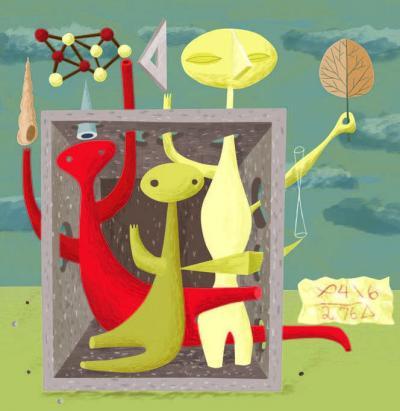The Montessorian Solution

Can our educational culture be changed by thinking more like children and less like adults? The Montessorian philosophy may offer the answer.
Despite widespread conjecture about what the next iteration of the Elementary and Secondary Education Act will look like, one thing is certain: Educational reform is on everyone’s mind. Tim Cauller believes that’s a change that can only happen if Montessorian philosophy is part of the conversation.
In Montessori schools, children have complete control over their interaction with a task. The child educates himself, and a student’s progress is measured solely on what he is cognitively ready for.
“We as individuals know what is right for us. The Montessorian philosophy most closely parallels natural human learning,” explains Cauller, associate director of Lehigh’s department of English as a Second Language. “And the data support that conclusion. Results show that Montessori’s approach to education works on an universal scale, regardless of socioeconomic, cultural and geopolitical differences.”
Cauller should know. He won first place in the 2012 American Montessori Society’s doctoral dissertation competition for his dissertation titled “Toward an improved model of education: Maria Montessori, Karl Popper, and the evolutionary epistemology of human learning.”
In the paper, he argues for an “Education-as-Evolutionary Epistemology,” or EEE, model for educational reform. EEE addresses three critical areas for future school reform: a revised structure of the learning environment, new roles and training for educators, and the redesign of curricula and assessments to support students’ trial-and-error learning processes.
Cauller believes changing our educational culture will take time, perhaps generations. It may require that Montessori philosophy be integrated into charter schools—pro.grams that tend not to be beholden to traditional policies and attitudes.
He knows that’s a tough sell in education circles, where changes are designed around adult priorities and conveniences. “Power, politics, bureaucratic con.trol and financial costs too often drive conversations about reform,” he says. “Meaningful change happens in spite of—not because of—those conversations.”